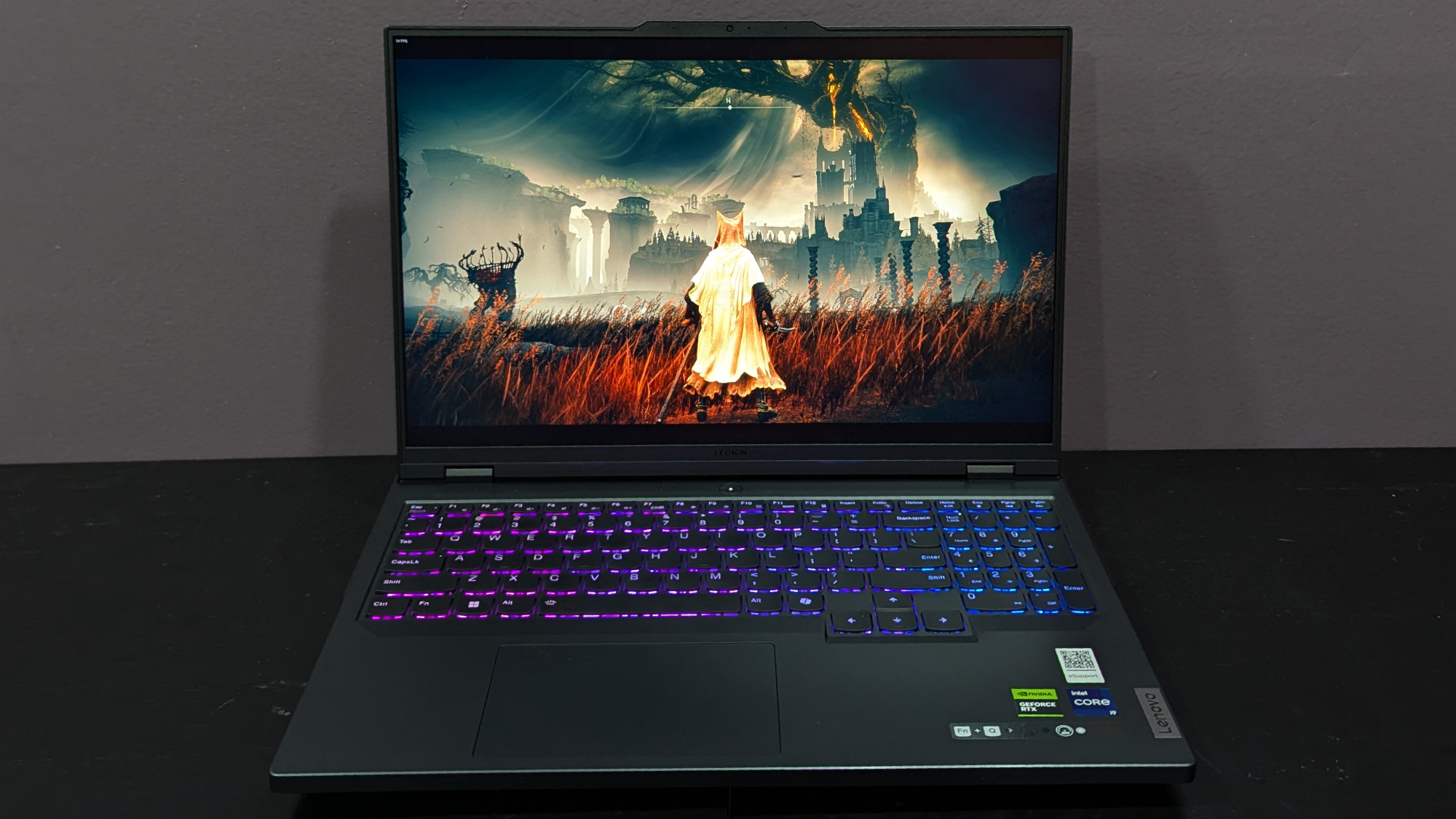
The Lenovo Legion Pro 5i (Gen 9) is a simple refresh, but it still boasts what made the previous generation great.
I called the previous Lenovo Legion Pro 5 a “perfect mid-range gaming laptop” last year. With the Generation 9, Lenovo has refreshed the Intel versions with phenomenally powerful 14th-generation processors. Not much else has changed, yet it still maintains itself as an impressive gaming laptop for the price.
However, that poses a problem in itself. Gaming laptops have grown a lot in the last year, and as displays and battery life continue to improve, the Legion Pro 5i still drops the ball in both. Keep reading to see if the Legion Pro 5i is right for you.
Lenovo Legion Pro 5i (Gen 9): Specs
Lenovo Legion Pro 5i (Gen 9): Price and configuration
The Legion Pro 5i we reviewed is available at Lenovo for $1,694. It’s built with an Intel Core i9-14900HX processor, Nvidia GeForce RTX 4070 graphics card, 32GB of RAM, and 1TB of SSD storage. It also has a 16-inch, 2,560 x 1,600-pixel IPS display rated at 300 nits at a 165Hz refresh rate.
The cheapest model starts at $1,399 and features the same processor and SSD storage but reduces the RAM to 16GB and the GPU to an RTX 4060. There are also options to upgrade to 2TB of storage space and a 500-nit panel at 100% DCI-P3.
Lenovo Legion Pro 5i (Gen 9): Design
The Legion Pro 5i’s design has remained largely unchanged from last year. It features a minimalistic dark gray aluminum lid with a gorgeously reflective Legion logo at the bottom right and the classic Lenovo logo at the top left. At the back is a thermal shelf with each port labeled alongside a power indicator.
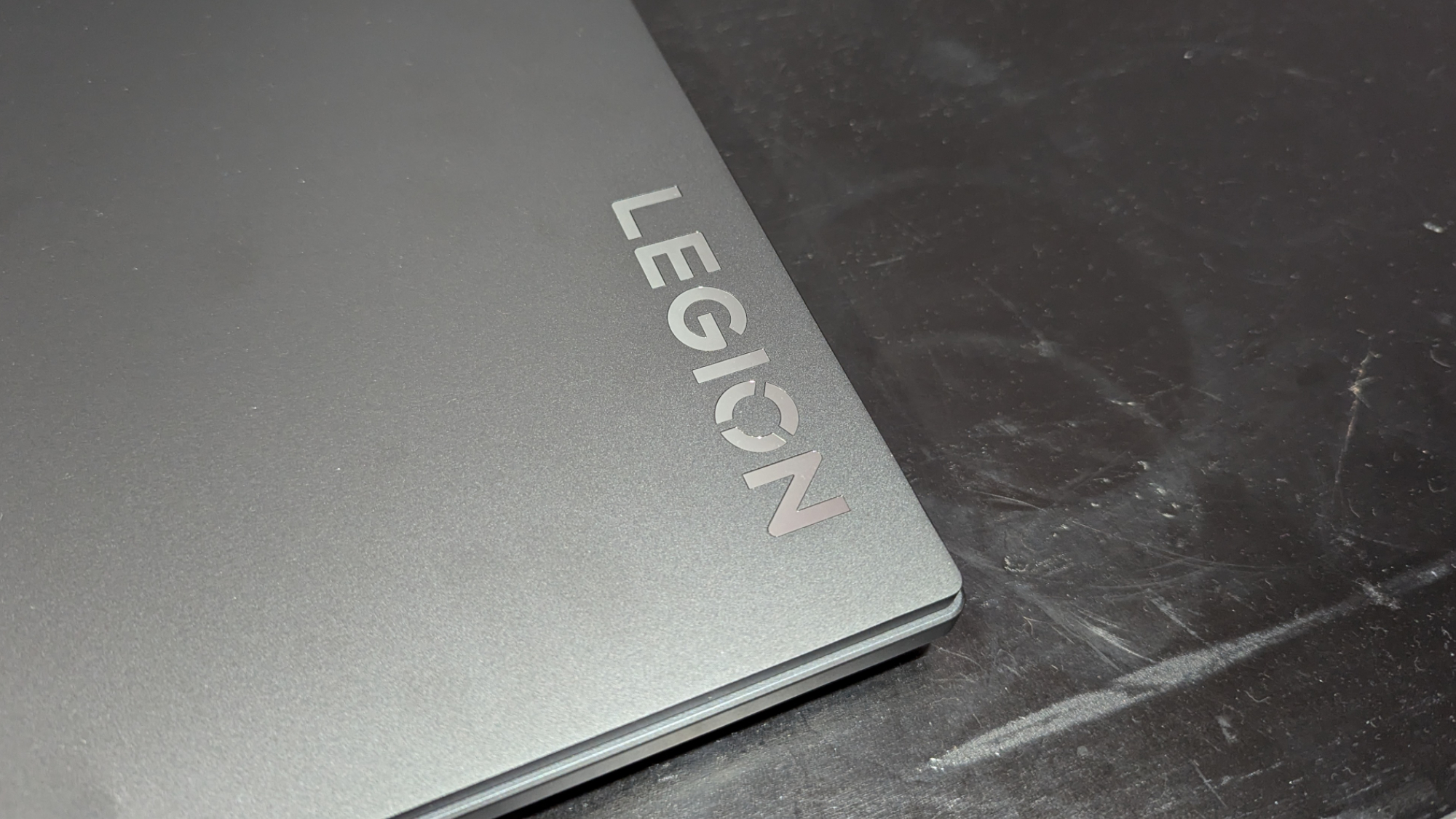
Lifting the lid reveals a minimalistic deck, and while it is plastic (specifically PC-ABS), it feels sturdy. The hinges are also rather strong, maintaining the weight of its lid and barely wobbling when I shift its position.
The Legion Pro 5i weighs 5.4 pounds and measures 14.3 x 10.3 x 0.9-1.1 inches. It's the lightest of other 16-inch competitors, like the Acer Predator Helios Neo 16 (5.7 pounds, 14.1 x 11 x 1 inches) and Alienware m16 R2 (5.8 pounds, 14.3 x 9.8 x 0.9 inches). Razer Blade 14 (4.1 pounds, 12.2 x 9 x 0.7 inches) is unsurprisingly lighter, considering it’s 14 inches.
Lenovo Legion Pro 5i (Gen 9): Ports
Most will be happy with the Legion Pro 5i’s collection of ports, although you might wish it included Thunderbolt 4. It has a USB Type-A port and USB Type-C with DisplayPort 1.4 support on its left side. It has another USB Type-A port and an audio jack on its right side.
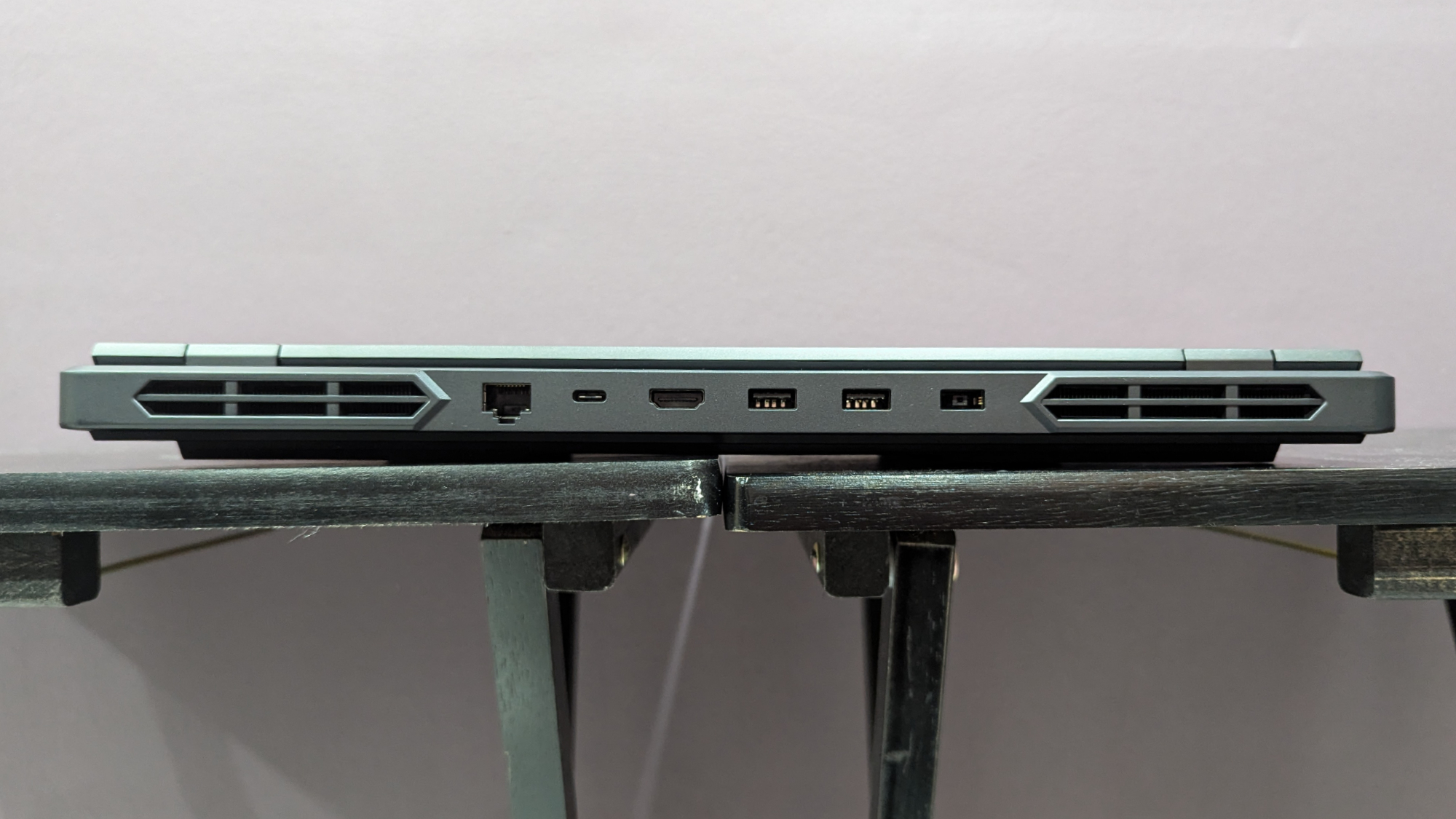
On the back, it has an ethernet port, another USB Type-C with DisplayPort 1.4, an HDMI port, two more USB Type-A ports, one always on, and a power connector.
Lenovo Legion Pro 5i (Gen 9): Display
Built with a 16-inch, 2,560 x 1,600-pixel display at 165Hz refresh rate, the Legion Pro 5i’s panel looks fine enough, but it could be brighter and more colorful.
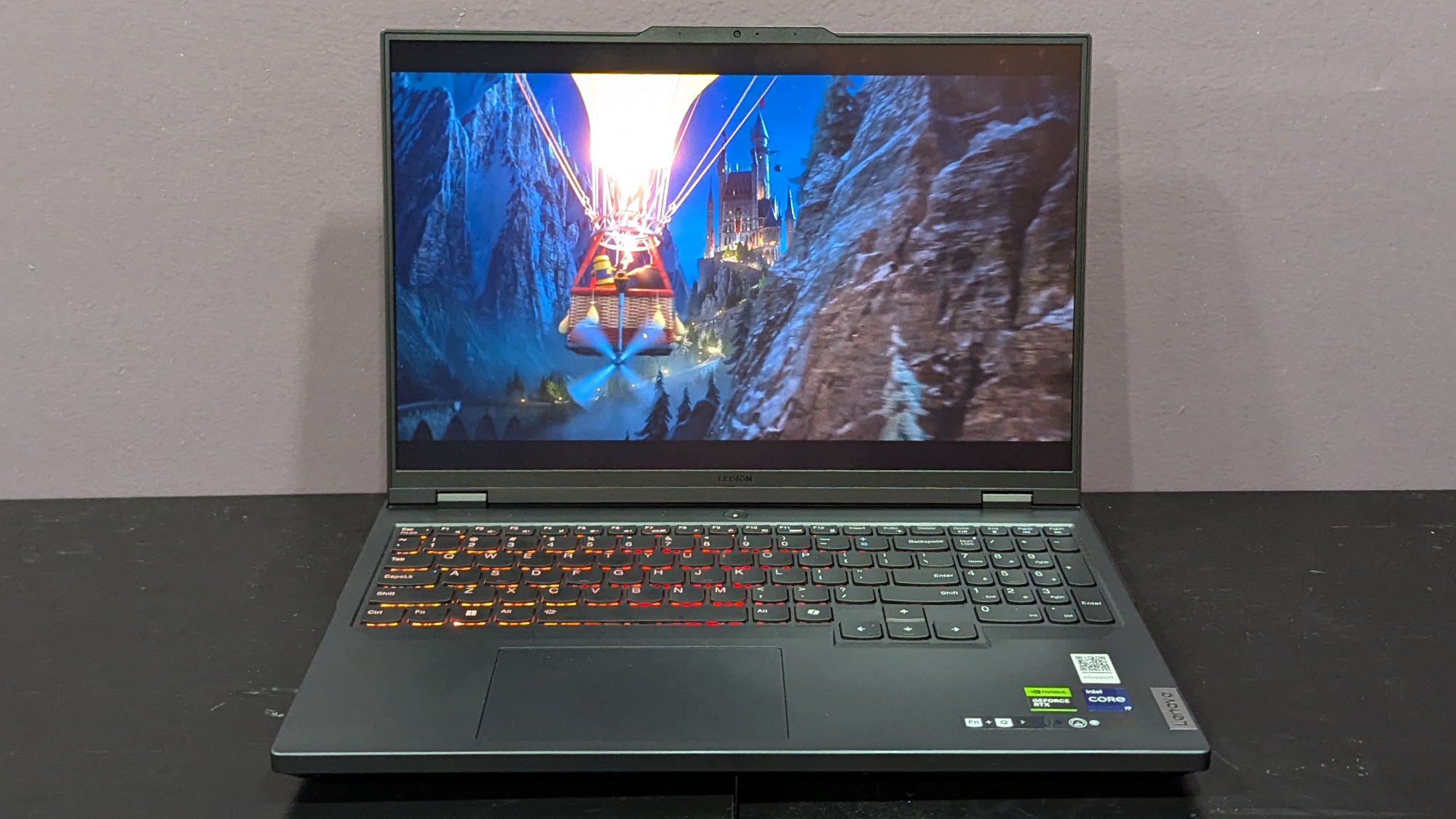
I watched the trailer for the highly anticipated animated film Despicable Me 4. I was satisfied by the color depth in its bright, sunlit suburban streets alongside the dimly lit night sky overlooking a castle embedded in a mountain. I only wish the display could get a little brighter and illuminate the darkest scenes.
I traversed the plains of Elden Ring’s new expansion Shadow of the Erdtree. I was stunned, overlooking the enormous dying tree towering over a series of castles as a flaming titan stomps throughout an expansive plain. I was speechless while dark shadows resembling massive transparent fabrics overwhelmed the sky. Sure, this display isn’t the brightest or most colorful in the world, but games as gorgeous as this one will still look great on it.
The Legion Pro 5i did about average on our color tests, reproducing 78 percent of the DCI-P3 color gamut. This is only a little bit worse than the 82 percent gaming laptop average. The Alienware m16 R2 (70 percent) couldn’t quite compete, but the Razer Blade 14 (79 percent) was in the same ballpark. The Predator Helios Neo 16 (92 percent) has the most colorful display of the bunch by a huge margin.
It maintained its inoffensive yet not particularly spectacular performance on our brightness tests, hitting a peak of 346 nits. This is a bit worse than the 364-nit average for mainstream gaming laptops. While the Alienware m16 R2 (288 nits) is alarmingly dim, the Razer Blade 14 (370) and Predator Helios Neo 16 (447) are brighter.
Lenovo Legion Pro 5i (Gen 9): Audio
We tested the Legion Pro 5i’s stereo speakers by playing a game, listening to music, and watching a film. While we’d love the audio to be louder, it’s clear, balanced, and punchy, making it a decent choice if you don’t plan to use an external solution.
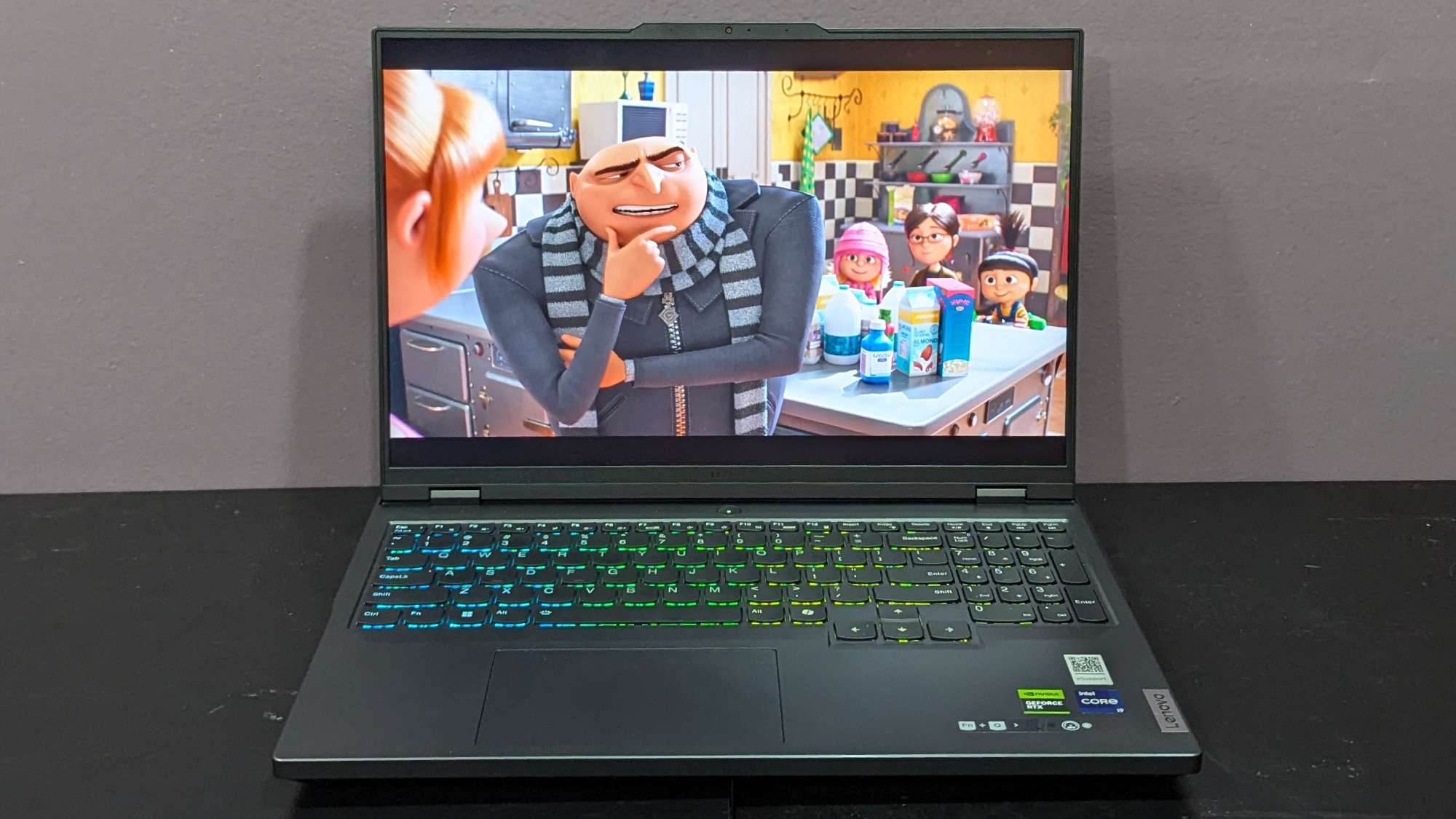
I listened to DJ Shadow's electronic dance track “Blood on the Motorway” and was impressed by how well it balanced the intense percussion, piano, synths, and xylophone without losing the weight of each element. Even the few moments when vocals are present are never overpowered by the rest of the track. However, it’s not particularly resounding at maximum volume, so while it maintains clarity and weight, it could be louder.
The issue of low volume was especially noticeable when watching the Despicable Me 4 trailer, as I could barely hear Gru’s voice against “Sweet Child O’ Mine” in the background. Even when there isn’t music present, and characters are talking singularly, it’s as if the laptop was at half volume when it was actually turned up to the max.
When playing Elden Ring: Shadow of the Erdtree, the audio was clear and weighty enough to immerse me in the pitter-patter of raindrops against a compelling string symphony accompanying its opening area, but I still wish it could get louder. It doesn’t help that the fans are noisy while gaming, which can overpower the speakers.
Lenovo Legion Pro 5i (Gen 9): Keyboard and trackpad
The Legion Pro 5i has an enormous legacy to live up to in this category: When I reviewed the previous model, I said it had the “perfect keyboard.”
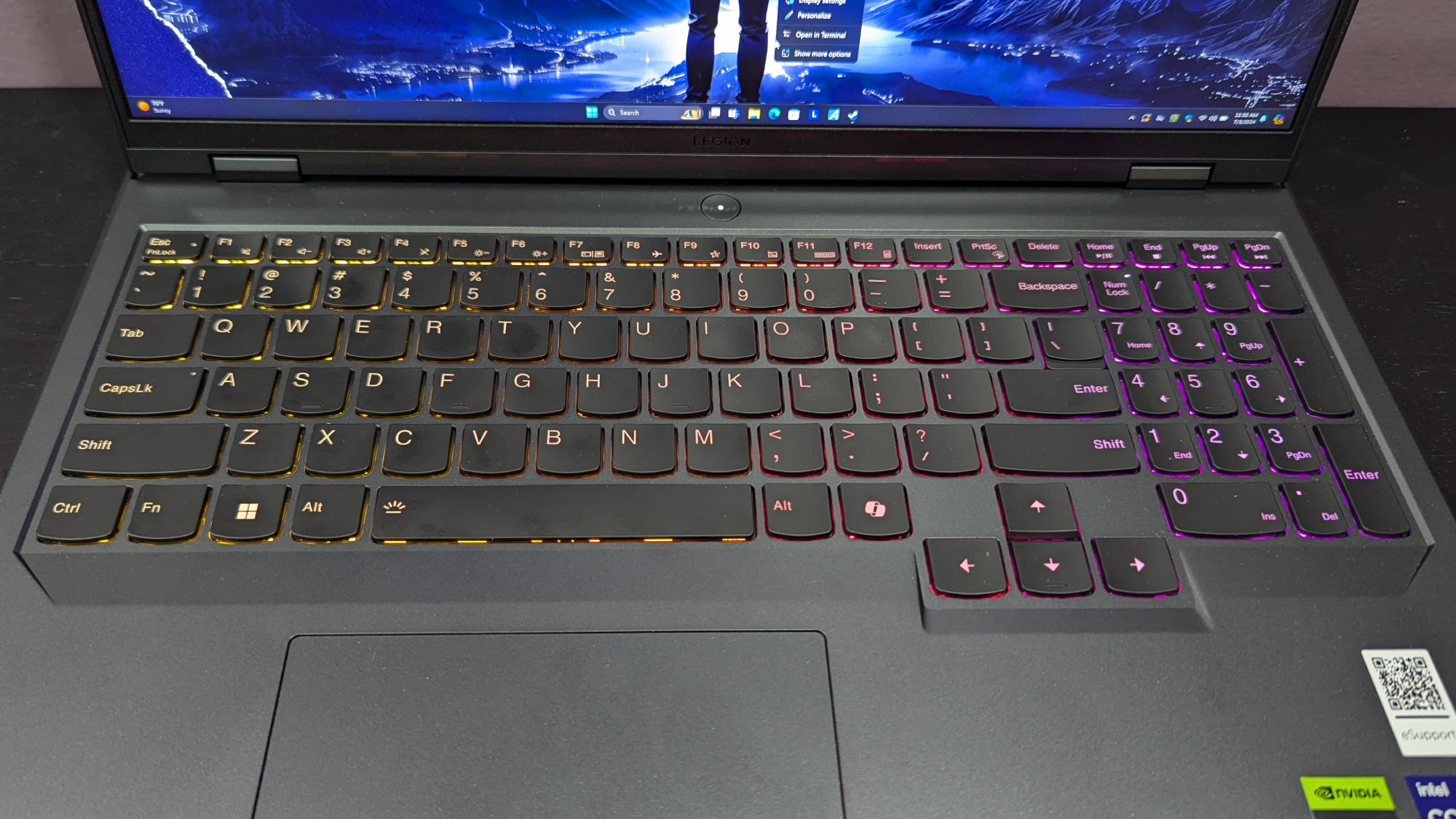
Thankfully, the deck is almost entirely identical. The only exception is the new inclusion of a Copilot key that replaces the right Ctrl. Otherwise, it’s the same, but what makes the keyboard so fantastic?
Built with a 4-zone RGB keyboard, the Legion 5 Pro boasts the inclusion of a decently sized number pad and, best of all, a dedicated nook for arrow keys. Too often, laptops of this kind make half-sized arrow keys, which can make them harder to use.
Lenovo simply placed the trackpad a bit to the left and made a dedicated nook for the arrow keys, causing them to hang a bit beneath the keyboard. Alongside its full-sized enter and shift keys, it’s perfect for gaming with accuracy, especially thanks to its satisfying clickiness.
I took the 10fastfingers typing test and managed 120 words per minute with a 99 percent accuracy, which is pretty much on par with what I can do on my mechanical keyboard and signals my comfort with the device.
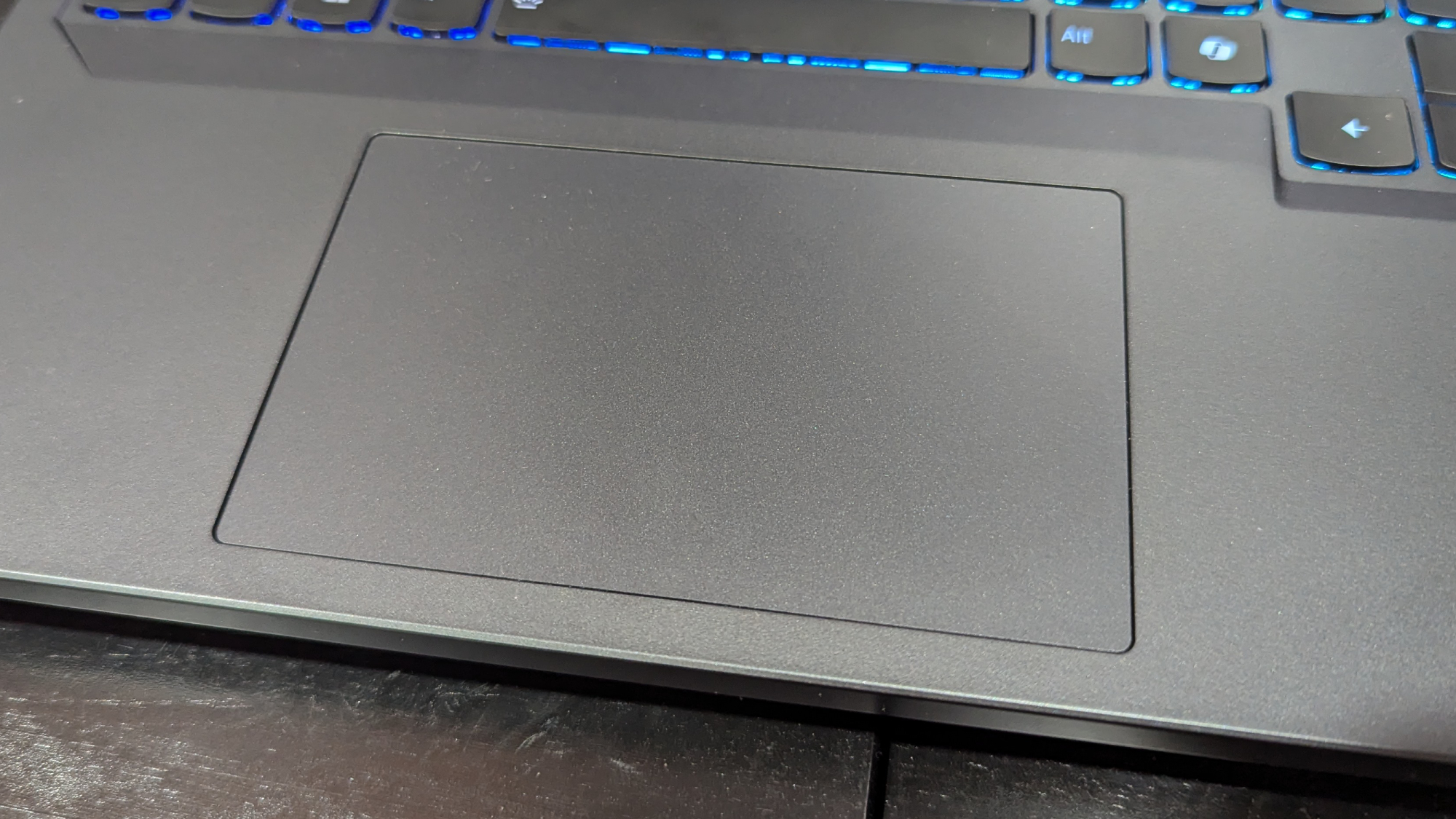
The 3 by 4.9-inch trackpad won’t perform any miracles, and if you don’t plan to use a controller when gaming, you’ll likely be using an external mouse anyway. Even then, there’s a good bit of friction when dragging files between folders, and it’s easy to accidentally stop pressing because the very top of the trackpad isn’t clickable.
Lenovo Legion Pro 5i (Gen 9): Gaming and graphics
Built with an Nvidia GeForce RTX 4070 graphics card with 8GB of vRAM, the Legion Pro 5i boasts more than enough graphical power for mid-range gamers looking to enjoy demanding titles without spending a fortune.
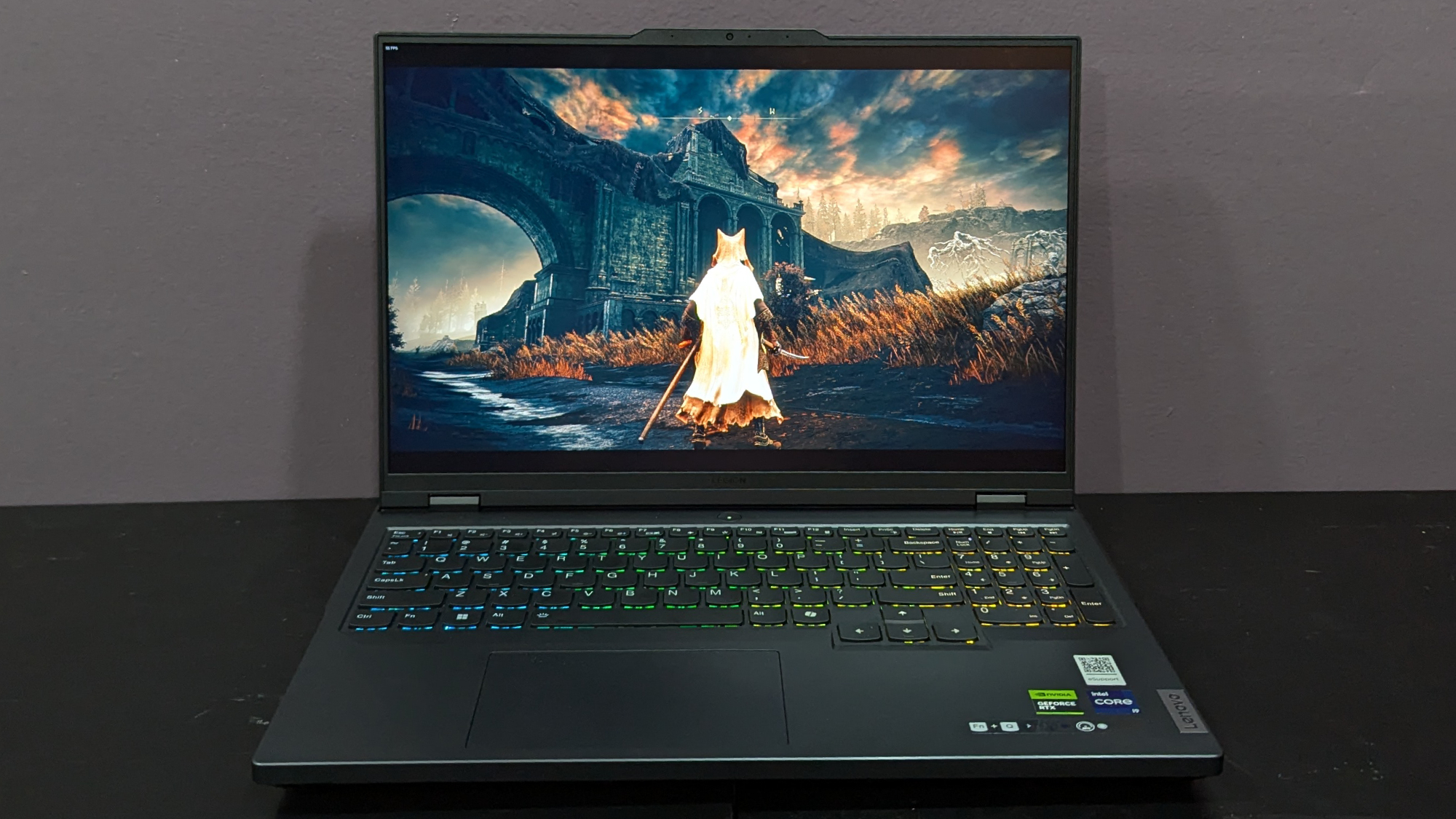
I played the Elden Ring expansion Shadow of the Erdtree on maximum graphics settings with ray tracing turned all the way up and managed around 50 fps as I explored Scorched Ruins in the opening area. It will occasionally drop to around 40 fps while intense fights are occurring, and if nothing particularly demanding is on screen at the time, it maintains a solid 60 fps.
We played Red Dead Redemption 2 at 1080p on medium graphics settings, and the Legion Pro 5i maintained an average of 71 frames per second. Not only is this an improvement over the category average (65 fps), but the Alienware m16 R2 (RTX 4070, 65 fps) and Predator Helios Neo 16 (RTX 4060, 65 fps) were beaten. The Razer Blade 14 (RTX 4070, 73 fps) came out first, but not by much.
Its best showing was when we played Far Cry 6 at 1080p on maximum graphics settings, with the laptop managing an average of 100 frames per second. This crushes the category average (85 fps), the Alienware m16 R2 (89 fps), Razer Blade 14 (86 fps), and Predator Helios Neo 16 (82 fps).
The Legion Pro 5i performed well enough when playing Cyberpunk 2077 at 1080p on maximum graphics settings, managing an average of 37 frames per second. The Alienware m16 R2 (40 fps) and Razer Blade 14 (42 fps) did a little better, while it matched the category average (37 fps). The Predator Helios Neo 16 (32 fps) was the worst of the bunch, which isn’t too surprising considering its RTX 4060 GPU.
It did pretty well during Assassin’s Creed Mirage at 1080p on maximum graphics settings, with an average of 103 frames per second. The category average (92) and Predator Helios Neo 16 (88 fps) were behind, while the Alienware m16 R2 (101 fps) managed a similar framerate. The Razer Blade 14 (107 fps) was only a bit ahead of the Legion Pro 5i.
Lenovo Legion Pro 5i (Gen 9): Performance
The Legion Pro 5i is built with an Intel Core i9-14900HX processor, 1TB of SSD storage, and 32GB of RAM. Frankly, this is one of the best processors you can use right now, as the power of Intel’s 14th Gen i9 cannot be understated.
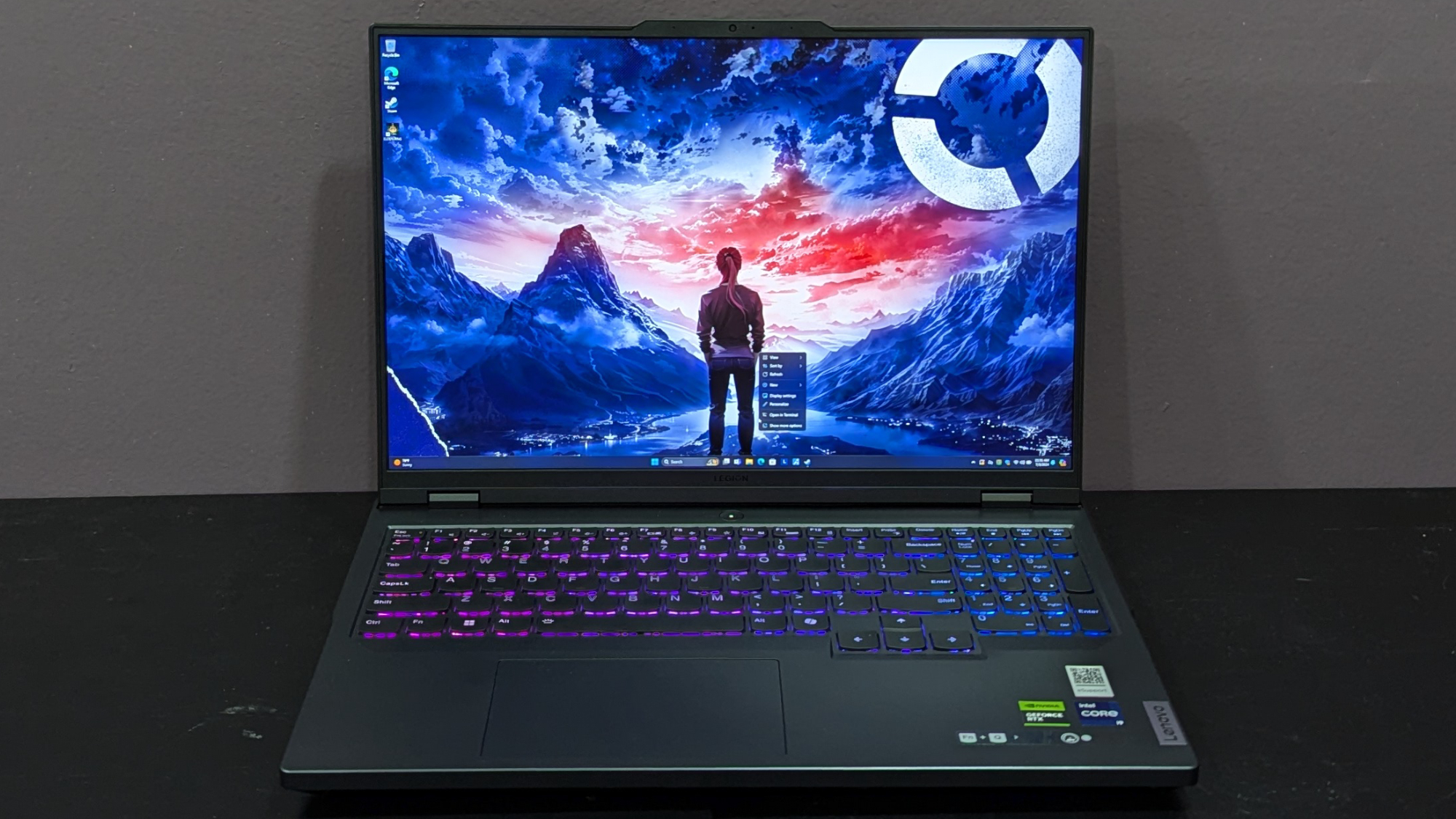
On the Geekbench 6 overall performance test, the Legion Pro 5i’s multi-core score of 17,585 is phenomenal. This puts it far above the category average of 10,477. The Alienware m16 R2 (Intel Core Ultra 7 155H, 12,784), Razer Blade 14 (AMD Ryzen 9 8945 HS, 13,781), and Predator Helios Neo 16 (Intel Core i9-14900HX, 16,730) were all destroyed.
The Legion Pro 5i was at the front of the pack when converting a 4K video into 1080p using the HandBrake app, accomplishing the task in 3 minutes and 6 seconds. This is better than the 4-minute and 16-second category average, Alienware m16 R2 (3:46), Razer Blade 14 (4:01), and Predator Helios Neo 16 (3:10).
The Legion Pro 5i duplicated 25GB of multimedia files in 14 seconds at a transfer rate of 1,933 megabytes per second, which is a decent bit slower than the 1,599Mbps category average. The Alienware m16 R2 (1TB SSD, 2,015Mbps), Razer Blade 14 (1TB SSD, 1,952Mbps), and Predator Helios Neo 16 (1TB SSD 2,121Mbps).
Lenovo Legion Pro 5i (Gen 9): Battery life
The necessity of battery life on a gaming laptop depends entirely on the user, and if you’re someone who plans to game on the go, you won’t find much juice in the Legion Pro 5i. On the Laptop Mag battery life test, which involves continuous web browsing over Wi-Fi at 150 nits, the Legion Pro 5i lasted 3 hours and 43 minutes.
Not only is this more than an hour shorter than the category average of 4 hours and 52 minutes, but it couldn’t clear any of its competitors. The Alienware m16 R2 (6:13) and Razer Blade 14 (6:26) lasted more than two hours longer, and even though the Predator Helios Neo 16 (4:09) is in a similar range, it’s at least a tad better.
Lenovo Legion Pro 5i (Gen 9): Webcam
We normally don’t expect anything special out of a gaming laptop’s webcam, but the Legion Pro 5i did a surprisingly decent job with its 1080p camera.
We normally don’t expect anything special out of a gaming laptop’s webcam, but the Legion Pro 5i did a surprisingly decent job with its 1080p camera. I took a photo in my office and was surprised at how the details of my messy, bushy eyebrows were maintained without making them look like a fuzzy mess. It also handles light well, as my bright lamp wasn’t overexposed, alongside the vibrant pink of my wall, keeping its glorious hue. There’s also a digital webcam shutter amongst the ports on the right.
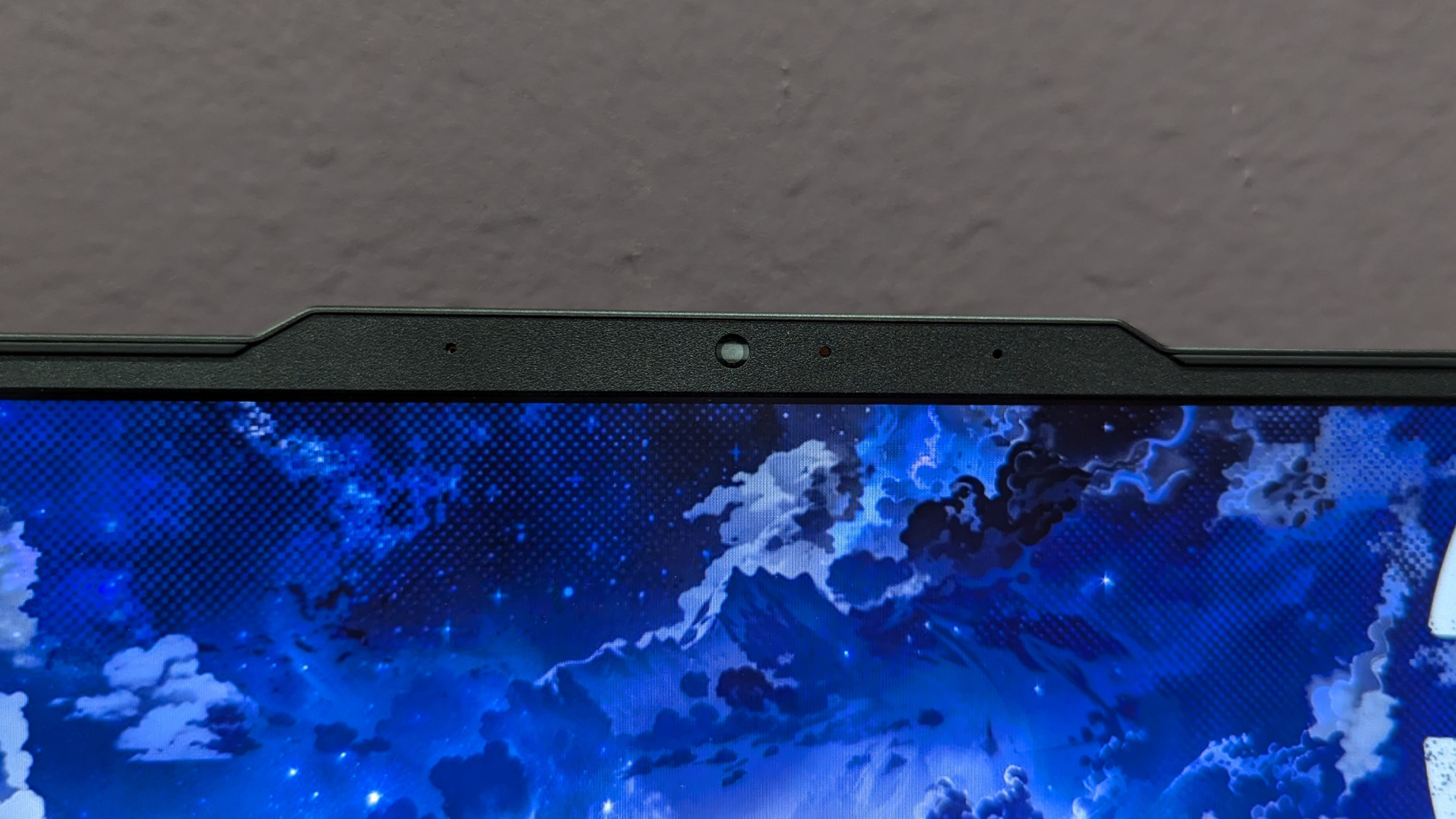
Lenovo Legion Pro 5i (Gen 9): Heat
We don’t recommend keeping a gaming laptop anywhere near your lap while in the throes of any game, but the Legion Pro 5i remained surprisingly cool throughout our testing. In our non-gaming tests, it hit 74 degrees at its touchpad, 86 degrees at the center of the keyboard, and 76 degrees on the underside. Its hottest point was 89 degrees, underneath the USB Type-C port on the left.
While playing Metro Exodus Enhanced Edition, the laptop hit 75 degrees at its touchpad, 97 degrees at the center of the keyboard, and 76 degrees underneath. The hottest point was 110 degrees, next to the model information sticker on the bottom of the chassis.
Lenovo Legion Pro 5i (Gen 9): Software and warranty
It is installed with Windows 11 and a suite of Lenovo applications, the two most important ones being Legion Arena and Lenovo Vantage.
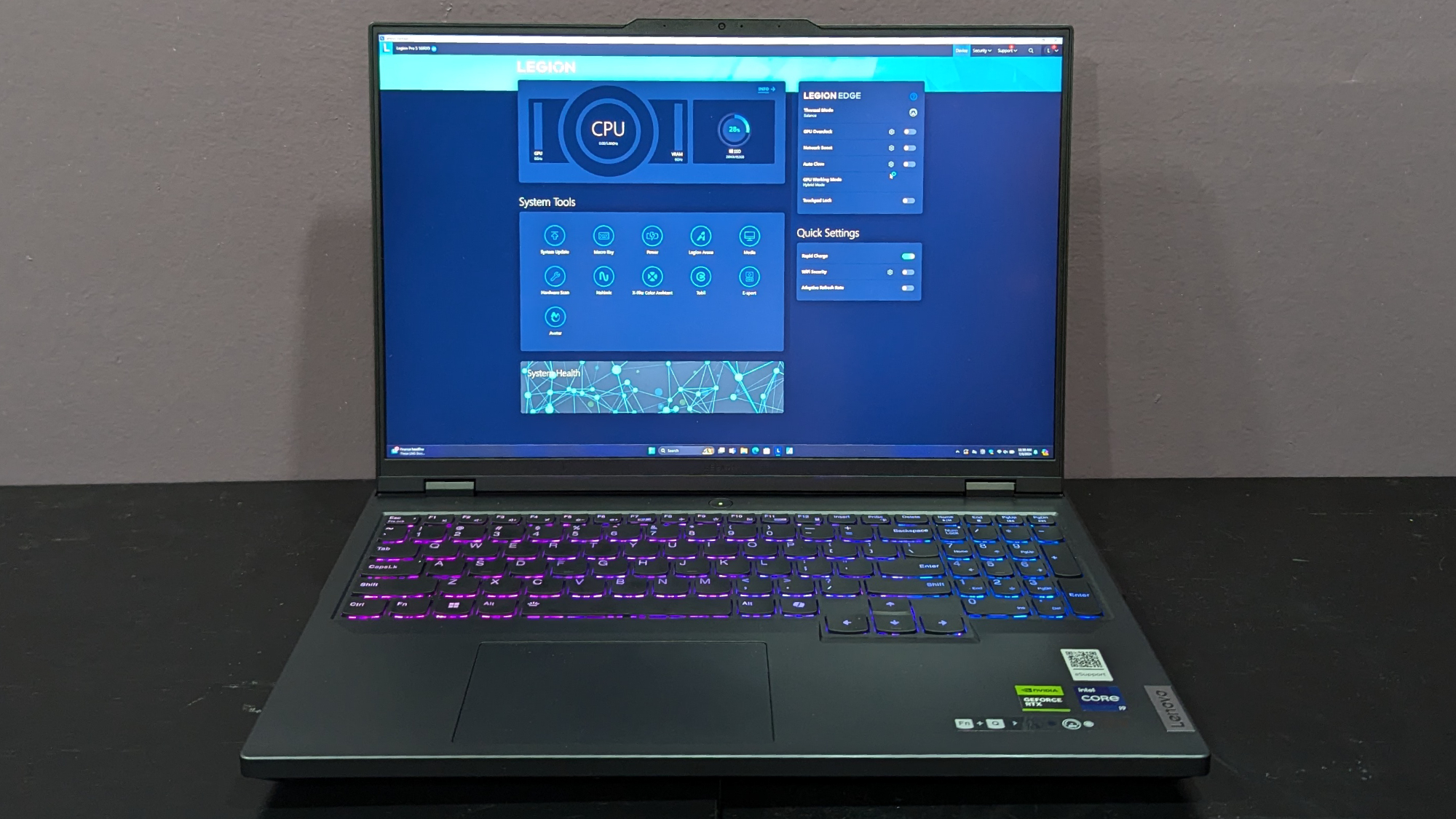
Legion Arena is a dedicated game library to keep everything installed on the device easily organized, allowing users to download additional games from third-party sources like Riot or Epic Games.
Lenovo Vantage is your one-stop-shop for everything you need in terms of software. This includes updating the system, creating macro keys, changing power settings and thermal modes, monitoring hardware diagnostics, and more.
However, it’s important to keep in mind that the laptop doesn’t feature software for modifying the RGB, as it’s only 4-zone and is changed by pressing Fn and Spacebar.
The Legion Pro 5i comes with a one-year limited warranty. Our Tech Support Showdown special report shows how Lenovo performed.
Bottom line
I fell in love with the Lenovo Legion Pro 5i last year. With the Generation 9 refresh, the company maintained its powerful graphics performance, excellent keyboard, sturdy exterior, and attractive price point, all with the incredible power of Intel’s latest processors.
However, its battery life is significantly worse than it was last year, nearly an hour shorter, landing it among some of the worst longevity I’ve seen in a gaming laptop. It’s also maintained its average display in a time when gaming laptops have become brighter and more colorful. In short, the Legion Pro 5i hasn’t grown much alongside competitors.
For a brighter and more colorful 16-inch display, we recommend the Acer Predator Helios Neo 16. Otherwise, the Legion Pro 5i is still fantastic.







